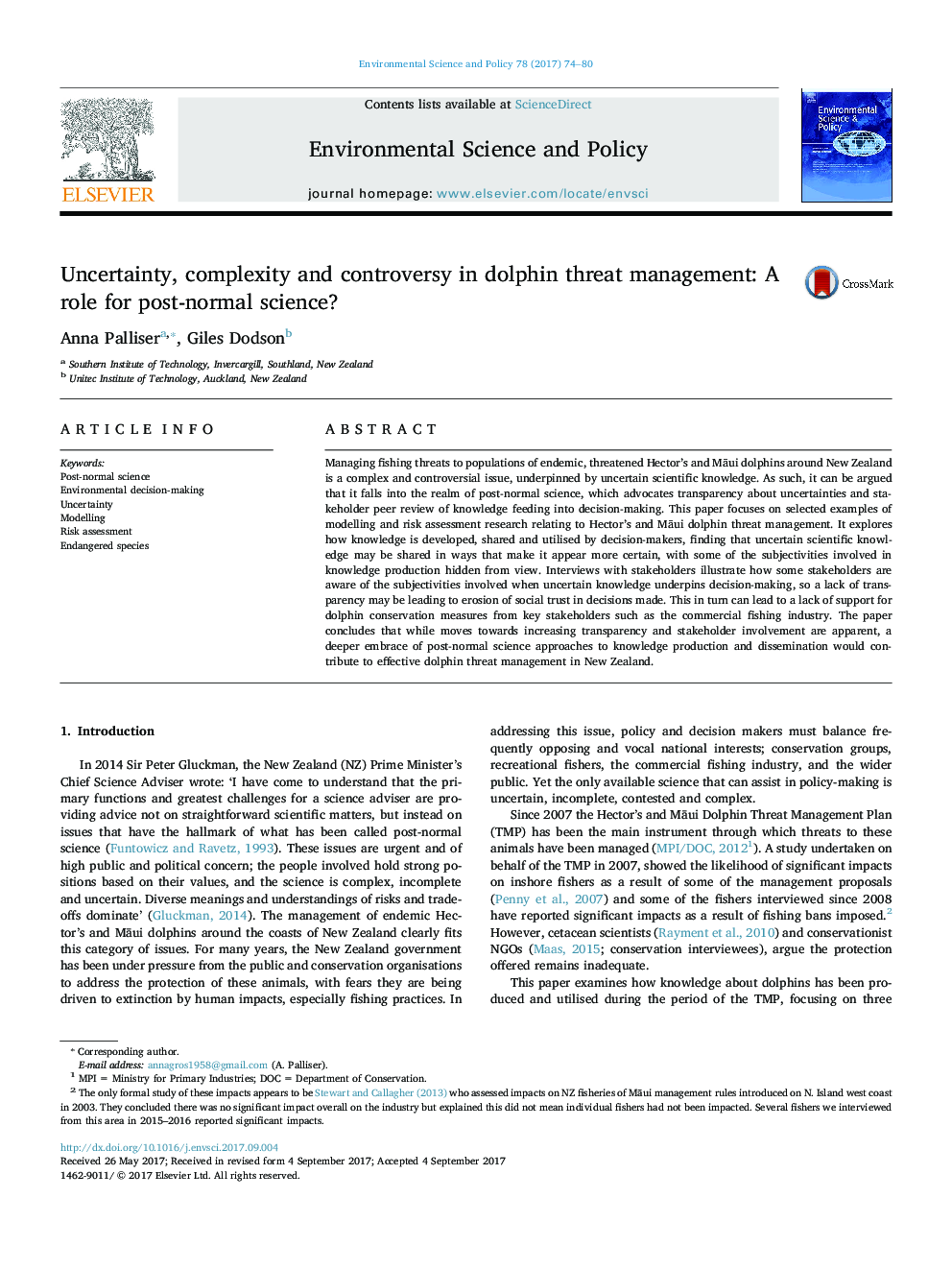| Article ID | Journal | Published Year | Pages | File Type |
|---|---|---|---|---|
| 5115682 | Environmental Science & Policy | 2017 | 7 Pages |
Abstract
Managing fishing threats to populations of endemic, threatened Hector's and MÄui dolphins around New Zealand is a complex and controversial issue, underpinned by uncertain scientific knowledge. As such, it can be argued that it falls into the realm of post-normal science, which advocates transparency about uncertainties and stakeholder peer review of knowledge feeding into decision-making. This paper focuses on selected examples of modelling and risk assessment research relating to Hector's and MÄui dolphin threat management. It explores how knowledge is developed, shared and utilised by decision-makers, finding that uncertain scientific knowledge may be shared in ways that make it appear more certain, with some of the subjectivities involved in knowledge production hidden from view. Interviews with stakeholders illustrate how some stakeholders are aware of the subjectivities involved when uncertain knowledge underpins decision-making, so a lack of transparency may be leading to erosion of social trust in decisions made. This in turn can lead to a lack of support for dolphin conservation measures from key stakeholders such as the commercial fishing industry. The paper concludes that while moves towards increasing transparency and stakeholder involvement are apparent, a deeper embrace of post-normal science approaches to knowledge production and dissemination would contribute to effective dolphin threat management in New Zealand.
Keywords
Related Topics
Physical Sciences and Engineering
Energy
Renewable Energy, Sustainability and the Environment
Authors
Anna Palliser, Giles Dodson,
